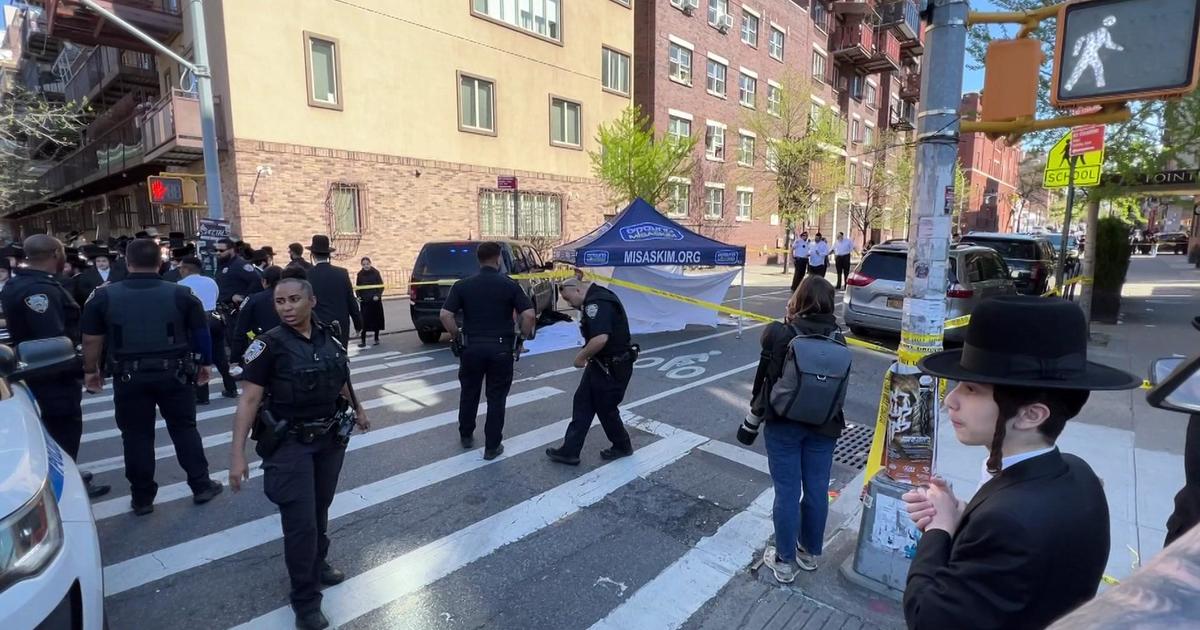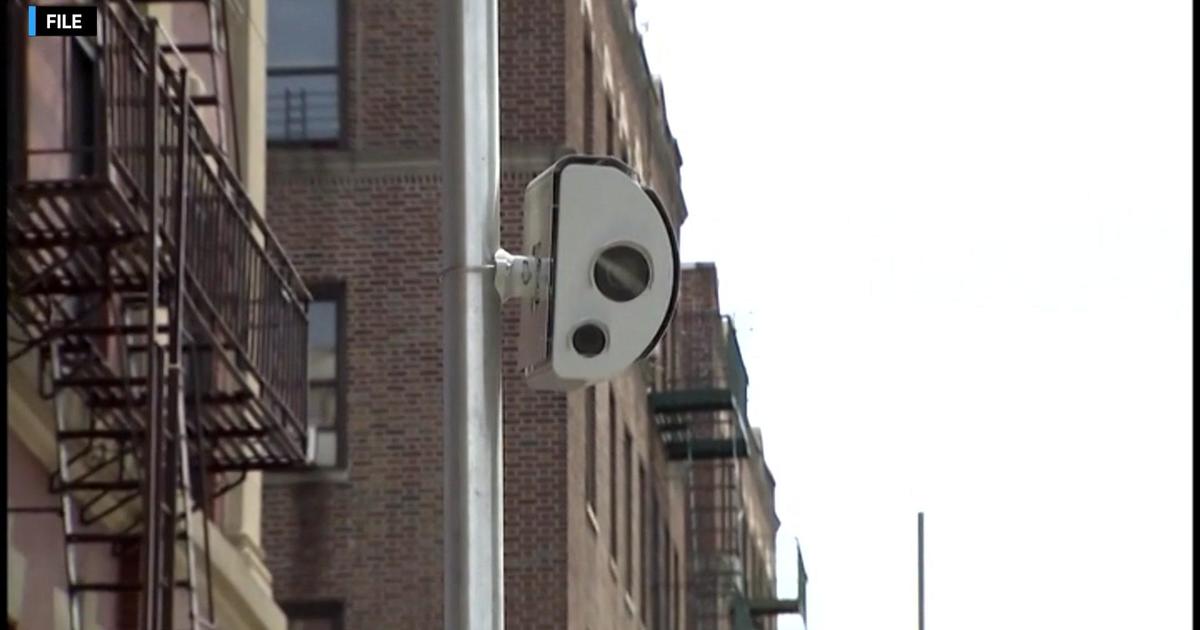Thanksgiving Travel: AAA Expects Tuesday Night To Be The Busiest Time
- Check Full List Of Thanksgiving & Balloon Inflation Street Closures
- Watch: NYPD On Parade Security Measures
- AAA Cold Weather Tips For Holiday Travel
- More Thanksgiving Tips
NEW YORK (CBSNewYork) – There's Thanksgiving Thursday, Black Friday and Cyber Monday – but Travel Nightmare Tuesday?
Sit back, relax and prepare for brake lights and bumper-to-bumper traffic.
AAA says tonight is the worst time to travel.
As if on cue, the Port Authority reported 45 minute delays at the George Washington Bridge due to the volume of traffic Tuesday night.
This holiday season, the group predicts the highest travel volume in over a decade.
"If you leave any time in the evening over the next few days, you're going to hit traffic. It's unavoidable," said Robert Sinclair, of AAA.
Between 3 and 6 p.m. Tuesday will likely be the worst.
MORE: Thanksgiving Travel To Be The Busiest In 13 Years, AAA Says
Already by midday, one woman told CBS2's Jenna DeAngelis the conditions were "terrible, terrible, terrible, terrible."
"We're traveling for Thanksgiving. We're doing an East Coast tour with our kids - we have seven of them in the van with us," she added.
"It's way too much," said Justin Winslow, of Paterson, New Jersey. "Even just getting to work today, I was 30 minutes late. So I'm definitely not going anywhere for Thanksgiving this year."
Scott Carson spends a lot of time behind the wheel and said there "ain't no way around it."
"I've been truck driving for 13 years now. It's ridiculous," he said.
The westbound stretch of Route 495 from New York City to New Jersey is expected to be one of the busiest areas in the country, along with the Hutchinson River Parkway and the Belt Parkway.
SEE IT: CBS2's Jenna DeAngelis Gets Photobombed By Possum
"We're anticipating 300,000 breakdowns – of just our members – over the holiday travel period," said Sinclair.
"Of course. This is northern New Jersey, right next to New York. It's over," Carson said.
Many feel it's too soon after sitting in hours of traffic during last week's snowstorm when Manhattan froze in gridlock.
"Last Thursday really, really sticks in people's minds, as far as how bad traffic can be. They really want to get out ahead of time. So it's just shifting the crush from one day to another," said Sinclair.
But when Carson thinks of his wife and kids on the other side, he said he "can't wait."
If you're traveling by airplane, expect it to be slow near airports. AAA says flights are up this year compared to last. The Port Authority said it's putting extra traffic agents at terminals and positioning tow trucks for quick response.
Here are more cold weather tips from AAA:
- Battery and charging system: Have the battery and charging system tested if your vehicle's battery is more than three years old. Even a good battery can lose up to 60 percent of its capacity when temperatures drop to zero. At freezing, a battery can lose up to 30 percent of its power.
- Coolant: Check the coolant level in the overflow tank when the engine is cold. If the level is low, add a 50/50 solution of coolant and water to maintain the necessary antifreeze capability. A 50/50 mix of antifreeze and water will protect your car's engine to minus 34 degrees Fahrenheit. Check the cooling system hoses for leaks, cracks or loose clamps. Any hoses that feel brittle or spongy when squeezed, should be replaced.
- Ignition: Today we don't think about tune-ups like we once did with older cars, but ignition systems can fail. Damaged ignition wires, a cracked distributor cap or worn spark plugs can make starting difficult. If the check engine light is flashing, this indicates an engine misfire that could be a result of a malfunctioning ignition system. Driving with a flashing check engine light will permanently damage the engine catalytic convertor, a very expensive repair.
- Oil: Always have your oil changed per manufacturer recommendations. You should have your vehicle's transmission fluid level checked as well. Synthetic oil is a benefit in every vehicle and will allow for quicker starts in very cold weather.
- Tires: Tire lose pressure in severe cold. Make sure tires are properly inflated before hitting the road. In areas with heavy winter weather, installing winter tires on all four wheels will provide the best traction. Winter tires are also formulated to remain flexible in very low temperatures. All-season tires work well in light-to-moderate snow conditions, provided they have adequate tread depth. Examine tires for tread depth, uneven wearing and cupping.
- Washer fluid: Fill the windshield washer fluid reservoir with a winter cleaning solution that has antifreeze components. Look for washer fluid that protects well below freezing temperatures.
- Wipers: Wiper blades should completely clear the glass with each swipe. Replace any blade that leaves streaks or misses spots.
- Engine Warm up: Extensive engine warm ups are not necessary even in very cold weather. A more fuel-efficient technique is once the car is running, you've selected your favorite radio station and your seat belt is fastened, drive gently until the engine comes up to operating temperature.



